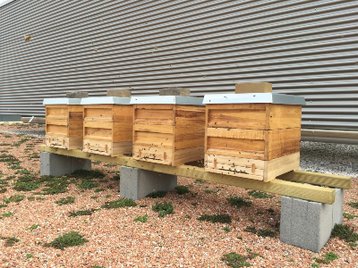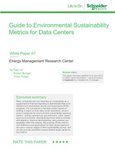NTT keeps bees on the roof of its Vienna 1 data center, sited in a green roof area, close to an urban green space.
The Vienna 1 facility is close to Wienerberg, an urban hilly area including a hiking trail, sports complex, and naturist beach, where NTT's bees will get plenty of forage.
"The proximity of our data center to a natural recreation area, together with the green roof area of the facility, gave one of our team the idea of giving bees a new home," says the NTT site. "This allows our on-site team to enjoy the delicious honey."
Depending on conditions, the four hives shown could produce around 100lb (45kg) of honey per year, and will help pollinate local plants.
Urban beekeeping is booming, with hives popping up in all sorts of places, but scientists at Kew Gardens sounded a warning last year, that too many hives in any given area can be bad for wild bees and other pollinators. The domesticated honeybee is not endangered in any way, but it can outperform native species including solitary bees, some of which are becoming rare.
Environmentalists suggest that honeybee hives are a good thing in moderation, but if companies want to support all pollinators they should improve the provision of forage plants and wildflowers on their verges and other parts of their site. Ireland's DCs for Bees campaign, led by Host in Ireland, has created a Pollinator Plan giving advice on how to do this.
NTT's Austrian 1 is also LEED (Leadership in Energy and Environmental Design) Platinum rated, and has a number of electric vehicle charging points. Waste heat is recovered and used for offices, and to preheat the generators. Rainwater is also recovered and used in the facility bathrooms. NTT's Austrian facilities get 70 percent of their electricity from renewable sources, and 30 percent from natural gas. NTT is also a member of Europe's Climate Neutral Data Centre Pact.




